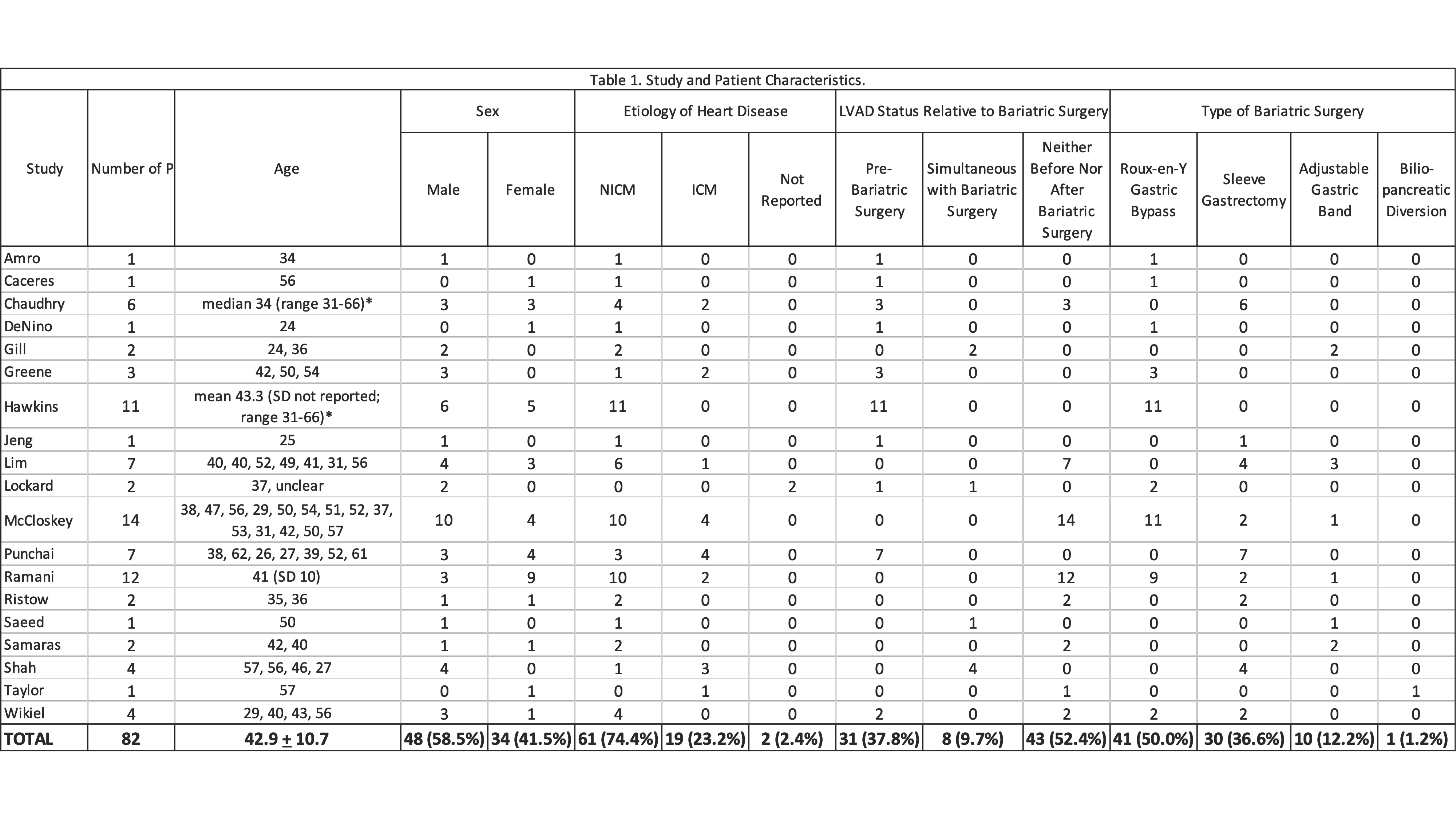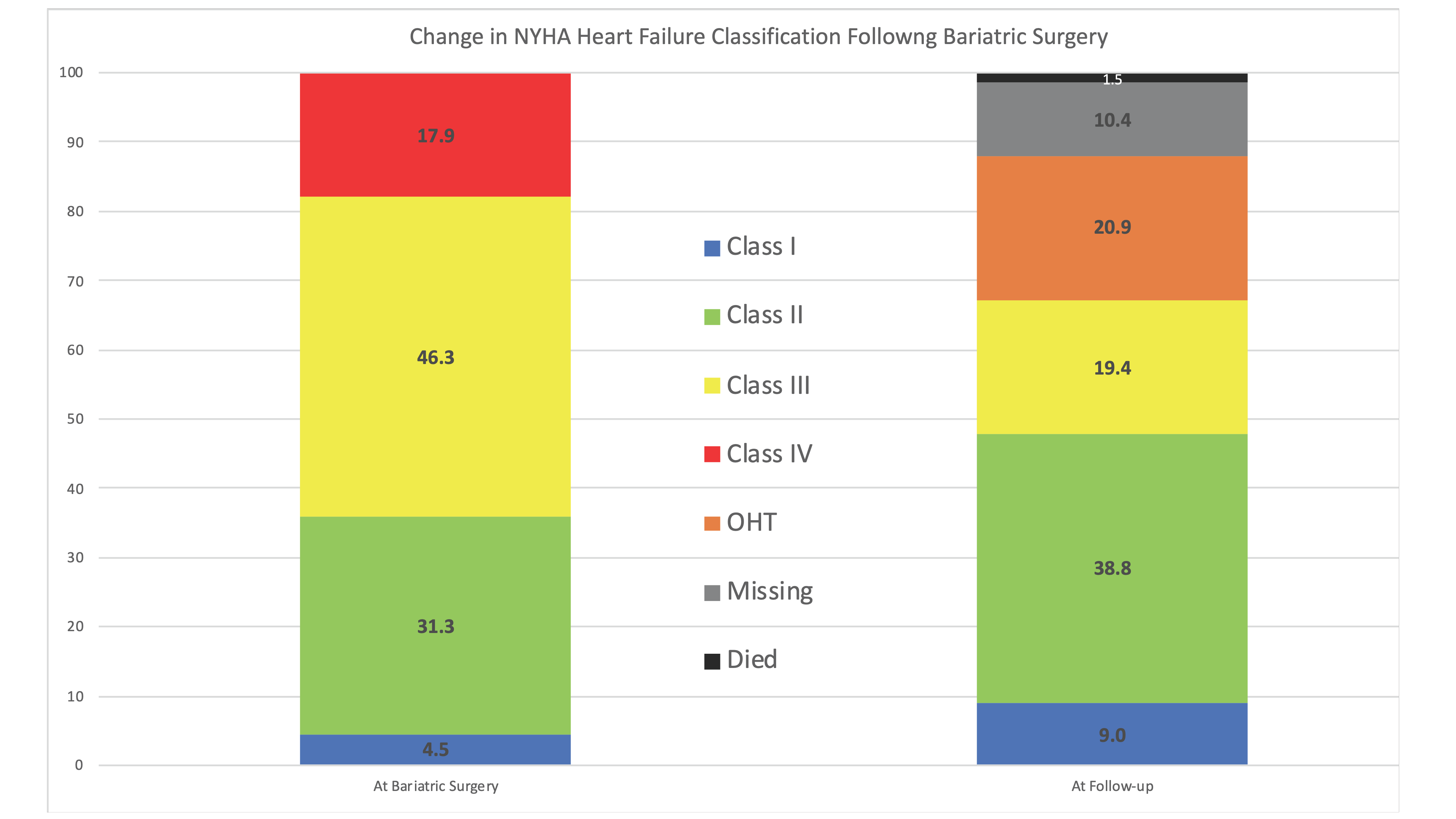Bariatric Surgery to Achieve Sufficient Weight Loss for Heart Transplant Candidacy: Results of a Systematic Review and Meta-Analysis
B. Orandi1, J. Purvis1, S. Mehta1, M. Gray1, S. Pamboukian1, J. Tallaj1, C. Hoopes1, C. Lewis1, N. Terrault2, J. Locke1
1UAB, Birmingham, AL, 2USC, Los Angeles, CA
Meeting: 2020 American Transplant Congress
Abstract number: B-255
Keywords: Heart failure, Heart transplant patients, Meta-analysis, Obesity
Session Information
Session Name: Poster Session B: Heart and VADs: All Topics
Session Type: Poster Session
Date: Saturday, May 30, 2020
Session Time: 3:15pm-4:00pm
 Presentation Time: 3:30pm-4:00pm
Presentation Time: 3:30pm-4:00pm
Location: Virtual
*Purpose: As the obesity epidemic grows, it can be expected that an increasing number of heart failure patients will be precluded from heart transplant based on BMI.
*Methods: A PubMed search strategy was used to identify studies of bariatric surgery to help patients achieve heart transplant. When possible, individual level data were aggregated to create summary statistics.
*Results: We identified 19 studies (761 were excluded), which included 82 patients who were ineligible for heart transplant because of their high BMI and subsequently underwent bariatric surgery (Table 1). 41.5% were female, mean age was 42.9, and 74.4% had non-ischemic cardiomyopathy as the etiology of their heart failure. Roux-en-Y gastric bypass, sleeve gastrectomy, adjustable gastric band, and biliopancreatic diversion were performed in 50.0%, 36.6%, 12.2%, and 1.2%, respectively. 37.8% had a left ventricular assist device in place prior to bariatric surgery and 9.7% had it placed simultaneous with bariatric surgery. Patients had a decrease in BMI from 47.3 kg/m2 pre-bariatric surgery to 34.8 kg/m2 over an average of 20.7 months of follow-up (P<0.0001). Of the 22 patients with ejection fraction (EF) reported both pre- and post-bariatric surgery, the mean EF increased from 20.5% (SD 4.8) to 33.2% (SD 14.4) (P<0.0001) over an average of 23.9 months of follow-up. Patients also had improvement in New York Heart Association Heart Failure Classification (Figure 1). Mean hospital length of stay was 8.0 (SD 5.7) days and no perioperative deaths were reported. 40.2% of patients were able to be listed and 72.7% of listed patients were able to be transplanted over a mean of 13.9 months (SD 5.4). Overall, 46.3% of the group was able to be listed or no longer required transplant (n=7) due to clinical improvement.
*Conclusions: Small sample size and publication bias in the identified studies are major limitations; however, the aggregated data suggest that with appropriate operative and perioperative care, bariatric surgery in heart failure patients with obesity that precludes transplant candidacy may benefit carefully selected patients.
To cite this abstract in AMA style:
Orandi B, Purvis J, Mehta S, Gray M, Pamboukian S, Tallaj J, Hoopes C, Lewis C, Terrault N, Locke J. Bariatric Surgery to Achieve Sufficient Weight Loss for Heart Transplant Candidacy: Results of a Systematic Review and Meta-Analysis [abstract]. Am J Transplant. 2020; 20 (suppl 3). https://atcmeetingabstracts.com/abstract/bariatric-surgery-to-achieve-sufficient-weight-loss-for-heart-transplant-candidacy-results-of-a-systematic-review-and-meta-analysis/. Accessed March 3, 2026.« Back to 2020 American Transplant Congress


